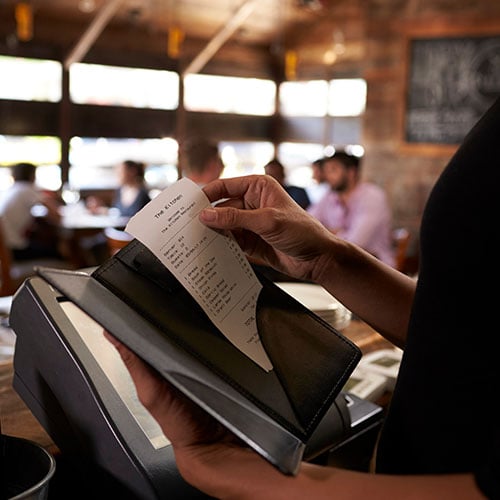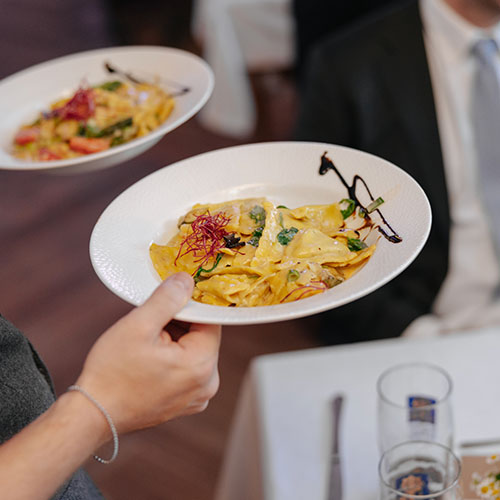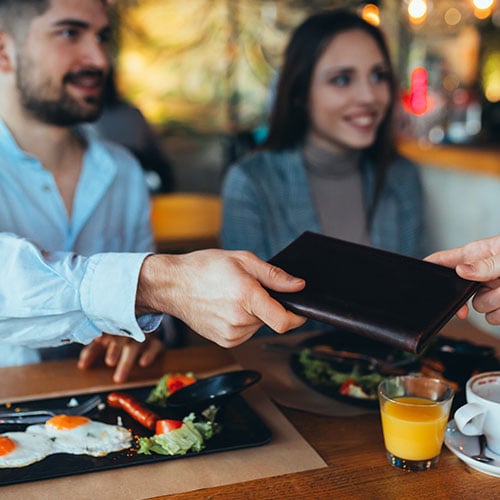Comping a meal is a common practice in the restaurant industry, where a meal or a portion of a meal is provided to a customer at no charge. This can be done for various reasons, such as to resolve a customer complaint, reward loyal customers, or promote a new menu item. Comping a meal is a strategic decision that requires careful consideration of the impact on the business's bottom line and customer satisfaction. We’ll explore the different scenarios in which comping a meal may be appropriate, as well as best practices for implementing this practice effectively.
What Does It Mean to Comp a Meal?
Comping a meal refers to the practice of providing a complimentary meal to a customer. This is typically done as a gesture of goodwill, to rectify a mistake, or to show appreciation for regular customers. Comping a meal can help to maintain customer satisfaction and build positive relationships. Businesses should have clear policies and guidelines in place for comping meals to ensure consistency and fairness.
Why Comp a Meal?

By comping a meal, you show your customers that you value their satisfaction and are willing to go the extra mile to ensure a positive dining experience. This gesture not only encourages repeat business but also creates a sense of trust and appreciation. Additionally, comping a meal can help mitigate the potential damage of a negative review, as customers are more likely to view the issue as resolved and feel acknowledged. Ultimately, by comping a meal, you can foster strong customer relationships, minimize negative feedback, and enhance overall customer satisfaction.
Who Can Comp a Meal?
When it comes to offering a comped meal in a restaurant, the responsibility usually falls on the manager or staff members who have received the authorization to do so. This ensures that the decision to comp a meal is made with careful consideration and aligns with the restaurant's policies. By assigning this task to a designated individual, the restaurant can maintain control over when and why a meal is comped, helping to manage costs and maintain a united front in your business. Some restaurants may provide their staff members with a comping budget, allowing them to decide when a complimentary meal is necessary while staying within a predetermined price range. This would allow you to factor in a comping allowance into your annual budget for restaurant accounting purposes.
When to Comp a Meal
There are several situations in which it may be appropriate to comp a meal for a customer. Here are some common scenarios:

- Meal Delays: If a customer's meal is significantly delayed, resulting in a wait time that is beyond reasonable expectations, it may be appropriate to comp their meal as a gesture of goodwill.
- Poor Service: When a customer receives poor service, such as rude or unprofessional behavior from staff, mistakes in order taking, or neglect in attending to their needs, it may be necessary to comp their meal to apologize for the subpar experience.
- Foreign Items in Food: Discovering foreign objects or substances, like hair, bugs, and wrappers, in a meal can be a major cause for concern and dissatisfaction. In such cases, it is crucial to address the issue promptly and comp the affected customer's meal to show that their well-being and satisfaction are of utmost importance.
- Major Kitchen Mistakes: In the event of significant errors in food preparation or cooking, such as undercooked or overcooked food, incorrect orders, or missing key ingredients, it may be appropriate to comp the affected meals as a way to acknowledge and rectify the mistake.
- Loyal Customers: Recognizing and rewarding loyal customers can be a wonderful way to maintain strong relationships and encourage repeat business. Comping a meal for a loyal customer can express appreciation and reinforce their loyalty.
- Special Occasions: Special occasions, such as birthdays, anniversaries, or other celebrations, provide an opportunity to go above and beyond for customers. Comping a meal on such occasions can make the experience more memorable and leave a lasting positive impression.
When Not to Comp a Meal
There are some instances where it isn’t necessary to comp a meal but you may feel pressured to do so. Remember, it's essential to evaluate each situation on a case-by-case basis and exercise your judgment when deciding whether or not to comp a meal. By maintaining consistency, fairness, and a focus on exceptional service, you can ensure the long-term success and reputation of your restaurant. Use the following tips to determine when a meal should not be comped:

- Celebrity Status: It can be tempting to comp a meal for a celebrity who walks through your doors. After all, their endorsement can bring in valuable publicity and attract other customers. However, it's essential to consider the long-term implications of comping meals for celebrities. If word gets out that you're providing free meals to famous individuals, it may create unrealistic expectations among your regular customers, leading to dissatisfaction and potential loss of business. Instead, focus on providing exceptional service and food quality to all customers, regardless of their status.
- Rude Behavior: While it's important to maintain a positive image and excellent customer service, there are instances where comping a meal is not warranted. If a customer exhibits rude or disrespectful behavior towards your staff or other patrons, it's crucial to address the situation appropriately rather than offering a free meal. Compensating rude behavior might send the wrong message and encourage further misconduct from the customer or others who witness it. Train your servers to take the time to address the issue directly, offer a sincere apology, and work towards resolving the problem without resorting to comping the meal.
- Picky Guests: Every restaurant has encountered picky eaters who are dissatisfied with their meal for various reasons. Being accommodating with reasonable requests can improve customer satisfaction, but comping a meal should not be the immediate solution for picky guests. If a customer simply doesn't enjoy the taste of a dish or has personal dietary preferences that were communicated but not met, it might be more appropriate to offer alternative menu options or suggest modifications to their liking. Compensating for personal taste preferences can set a precedent that encourages customers to exploit the system and request free meals regularly.
- Food Critics: Restaurants often face the scrutiny of food critics who visit intending to review and critique their dining experience. While it's natural to want to impress these critics and potentially secure a positive review, comping a meal for them is not always the best approach. Compensating a food critic's meal might be perceived as an attempt to manipulate their opinion or influence their review. Instead, focus on consistently delivering exceptional service and food quality to all customers, including food critics. By providing an outstanding dining experience to everyone, you increase the likelihood of receiving positive reviews naturally.
- Unreasonable Requests: Occasionally, customers may make unreasonable requests that go beyond what your restaurant can reasonably accommodate. Whether it's an extravagant modification to a dish, an excessive amount of freebies, or an unreasonable demand for a comped meal, it's vital to assess the situation objectively. While exceptional circumstances may warrant bending the rules occasionally, it's crucial to establish clear boundaries and communicate your restaurant's policies. Compensating for unreasonable requests regularly can create a culture of entitlement and put unnecessary strain on your business's profitability.
Other Customer Service Tactics
When comping a meal is not a viable solution or if you want to provide additional options to appease your customers, there are other acceptable customer service tactics that you can offer. These alternatives can help demonstrate your commitment to customer satisfaction and go a long way in rebuilding trust and loyalty:

- Discounts: Offering a discount on the current meal or a future visit is a popular way to make amends. This shows that you value your customers and are willing to provide them with a financial benefit to make up for any inconvenience or dissatisfaction they may have experienced.
- Gift cards: Providing a gift card is another effective way to apologize for a less-than-ideal dining experience. By giving customers a gift card, you not only acknowledge their dissatisfaction but also provide them with the opportunity to return and have a better experience in the future.
- Respond to negative reviews: If a customer has expressed their disappointment in a public forum, such as an online review site or social media platform, it is crucial to respond promptly and professionally to negative reviews. Apologize for the negative experience and offer to rectify the situation. This public display of accountability and willingness to address concerns can help mitigate any potential damage to your restaurant's reputation.
- Follow-up via email: After a customer has expressed their dissatisfaction, it is essential to follow up with them to ensure their concerns have been addressed. Sending a personalized email shows that you care about their experience and are committed to resolving any issues they may have. This gesture can help rebuild trust and potentially turn a dissatisfied customer into a loyal one.
By understanding when to comp a meal, restaurant owners and managers can effectively handle various situations that may arise in their establishments. While it is essential to have a policy in place for your staff to reference, you may need to address comping on a case-by-case basis. Use these tips to effectively utilize comping as a tool for customer satisfaction and business growth.



